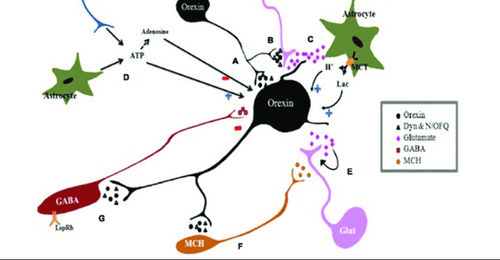This is an automatically translated article.
Many people feel that listening to music helps to increase concentration when working and studying, but some people think that music or any other noise distracts and reduces work performance. So, does music bring any benefits in studying and working, let's find out through the article below.
1. Benefits of Music
Music affects everyone in different ways, so it's hard to answer the question exactly what does music help us or does music benefit us much? Research from scientists shows that certain types of music can help improve concentration, alertness and memory. Accordingly, the benefits of music are shown indirectly but can still make a big difference as follows:
1.1. Music helps to motivate
If you struggle with grueling assignments or tasks, the motivation to push through them will help you get things done better. You can motivate yourself with rewards for yourself after completing work such as watching the latest episode of a favorite show, eating a favorite food... A study from five years ago. 2019 shows that music stimulates motivation similar to the above rewards, rewarding yourself with a favorite music will help increase motivation to study, work, learn new information. If your favorite music does not have many benefits in studying, listening to it during breaks is also a way to increase your motivation.
The reason music helps to motivate is explained by the nerve cells in the brain that respond to music and change the rhythm of the brain, thereby affecting how you feel. These neurons work slowly when you listen to slow-paced music, and the activity increases with the rhythm of the music. So, to keep yourself motivated, try listening to faster music during school breaks, add in exercise or a snack to maintain energy, stay motivated and reduce stress.
1.2. Music helps to increase concentration
According to a 2007 study from Stanford University, classical music helps the brain to absorb and process new information more easily and improves spatial reasoning. Spatial reasoning is the ability to find, think, derive relationships between objects, and solve problems. This use of classical music is known as the Mozart effect.
The brain processes information received from the outside by breaking it down into small segments. Researchers have found evidence that music can engage the brain in a way that helps it better pay attention to events and make predictions about what might happen, thereby suggesting sound Music makes learning more effective.

Âm nhạc giúp học tập trung, ghi nhớ thông tin mới
1.3. Music helps to remember new information
A study done in 2014 found that classical music seems to help older adults remember new information and process tasks better. This finding also indicates that certain types of music can help boost people's memory and cognitive abilities. Music stimulates the brain, in the same way that exercise stimulates the body - the more you exercise your muscles, the stronger they become. Therefore, the brain regularly exposed to music will help increase memory, strengthen the spirit better.
1.4. Music relieves stress
Tests, exams in studying or completing work is one of the causes of stress. Stress if it goes on for a long time can be harmful to health and lead to the following consequences:
Increased anxiety; Having sleep problems such as trouble sleeping, insomnia; Decreased concentration; Thinking becomes complicated; Reduce work productivity. Therefore, listening to music helps to relax, reduce stress and music helps to concentrate more. A study has found that listening to music for an hour a day induces changes in the brain and helps to relax the mind. Besides, another study found that people who listen to classical music have lower blood pressure than those who listen to jazz, pop or no music.
2. Harm of music
Besides great benefits, music also causes some harm as follows:
2.1. Decrease concentration
In addition to the concentration-enhancing benefits of classical music for the brain, the negative impact of music on concentration is shown in its ability to deceive attention. For example, when you are in a sad or stressed mood, listening to upbeat music will help distract yourself and make your mood happy and lift your spirits. The negativity here manifests when you need to focus a lot on a task, but the music is too loud and too fast, it will interrupt your thoughts and hinder your thought process and concentration.
Accordingly, scientists have studied that background music with lyrics can affect attention while studying or working. Listening to music with a lot of lyrics will cause distraction and reduce attention, reduce reading comprehension.

Âm nhạc có thể cải thiện tâm trạng, tăng động lực và mức độ tập trung hơn
2.2. Negative effects on memory
Memory helps you use stored information for problem solving, learning and other cognitive tasks. Most people can work using a lot of information at once, a high capacity of active memory means you can handle more documents. However, some studies show that listening to music can decrease memory performance. Therefore, in case you need to deal with a lot of information, you should limit listening to music to avoid negatively affecting the quality of study and work.
2.3. Decreased reading comprehension
Certain types of music including fast-paced, loud music and music with lyrics can make it harder for you to understand or absorb the reading material.
3. Measures to use music effectively in learning
Music does not always help study effectively or negatively affect study or work. Choosing the right type of music will help you take advantage of the great benefits that music brings. Some measures in choosing music are as follows:
Avoid choosing music with lyrics: Music with lyrics will make you easily distracted, reduce reading comprehension; Choose slow-tempo music, instrumental: The benefits of music often come from classical music, but if you don't like this type of music, you can choose slow-tempo music, instrumental music from different genres. musical instruments such as piano... Avoid surprising music: Music with sudden and unstable rhythms makes your thoughts swept along, thereby reducing your ability to concentrate, reducing work efficiency. job; Turn down the music volume: Music that is too loud will interrupt your thoughts; Choose songs without strong emotions: Music that affects your emotions as much as songs you like or hate will affect your ability to concentrate; Besides music, some other sounds can also help with higher learning and work efficiency such as sounds of nature (birds singing, rain, ocean waves...). Thus, music can improve mood, increase motivation and concentration level to solve work and study. However, music does not always bring benefits, so choosing the right music plays an important role in its effectiveness.
Follow Vinmec International General Hospital website to get more health, nutrition and beauty information to protect the health of yourself and your loved ones in your family.
Please dial HOTLINE for more information or register for an appointment HERE. Download MyVinmec app to make appointments faster and to manage your bookings easily.













